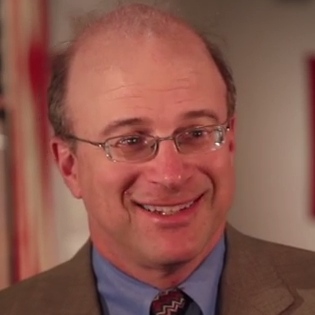
“WorldWar II is the greatest drama in human history, the biggest war ever and a true battle of good and evil.” — novelist Ken Follett
The great human drama known as World War II shaped the way we see the world today and, on Friday, May 8, the world will commemorate one of the most important milestones of the conflict —the 70th anniversary of Victory in Europe Day (V-E Day), which signified the end of the war in Europe.
Florida State University’s Institute on World War II and the Human Experience is doing its best to preserve the countless documents, photos and artifacts that help tell the story of this monumental time in history.
“World War II just changed the world,” said Kurt Piehler, associate professor of history at Florida State and director of the institute. “You can’t understand present day without understanding the importance of World War II for American society and world society.”
Founded in 1997 by Professor William Oldson, the institute began as an effort to save priceless photographs that were destined for the trash.
Under the direction of Piehler since 2011, the institute now holds more than 6,800 collections from individual donors and is housed in the Bellamy Building at Florida State. Individuals from 49 states and Washington, D.C., have donated materials, in addition to 31 collections from outside the United States.
“It’s one of the largest collections that focuses on the human dimension —the average solider, the home front and the civilian,” Piehler said. “It’s probably one of the largest collections on World War II at an American university.”
The institute’s premier collection was donated by former NBC News anchor Tom Brokaw. It contains thousands of letters, photographs, and manuscripts and books Brokaw collected and received while writing his Greatest Generation trilogy.
While select collections at the institute have been digitized, Piehler is diligently working to expand the institute’s online presence and make it easier to access for researchers.
Piehler has enlisted students in his undergraduate classes to help digitize collections with the idea of integrating the institute into the curriculum.
“They have done a fabulous job,” Piehler said.
Some of the notable collections that have been digitized are:
The Anne and Wayne Coloney Collection is the largest collection from a single family.Wayne Colony served with the 714th Tank Battalion, 12th Armored Division, U.S. Army in the European Theater. His father, Rear Admiral H.P. Coloney, U.S. Navy, served in the Pacific Theater as well as in World War I and the Korean War.
The Brosky Collection focuses on a family of three brothers from Carnegie, Pa., including John S. Brosky, who served as an Army Battery Commander, 155 MM Artillery, in the Pacific, and went on to serve as a judge with the Pennsylvania Supreme Court.
The Hazel Lois Bowman Collection documents the life of Hazel Bowman, a Red Cross nurse stationed overseas, primarily in India, during the war.
The Oliver L. Austin Collection is the largest slide collection at the institute pertaining to Japan during the Occupation, Antarctic from 1956-1957, and other places in the South Pacific. It includes rare photographs of Japan’s Crown Prince Akihito as a child.
“What makes us distinctive is we have a very distinctive collection,” Piehler said.
In addition to Piehler, Florida State has several faculty members who work directly on the World War II era, including professors Nathan Stoltzfus, Robert Gellately and Annika Culver.
The institute displayed several of its collections at “The Human Experience” exhibit at FSU’s Museum of Fine Arts in February and March. It also hosts public lectures and scholarly conferences on a regular basis.
For more information, visit the Institute on World War II and the Human Experience’s website at http://ww2.fsu.edu/.




